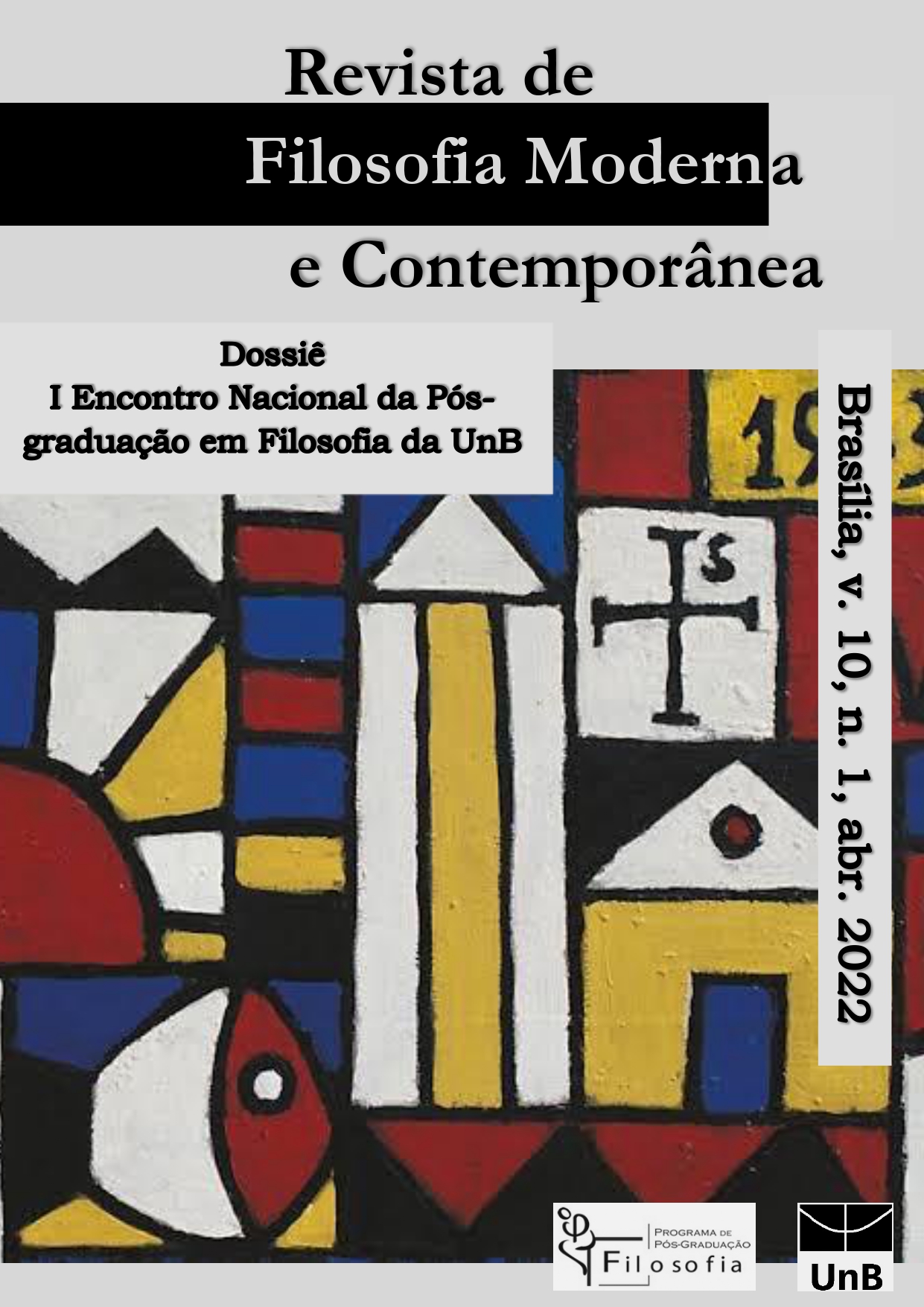The Prince, the Social Conflict and the Construction of a Collective Identity in Machiavelli
DOI:
https://doi.org/10.26512/rfmc.v10i1.47751Keywords:
Machiavelli. The Prince. Social conflict. Collective identity.Abstract
This text aims to examine the way in which a collective identity is constructed in Machiavelli’s The Prince, as well as the limits of this construction. First, we seek to demonstrate the primacy of social conflict over all other elements considered by Machiavelli, including the prince. Next, we seek to indicate the complexity of this determination, as the prince’s action also affects the aforementioned conflict by influencing it. Finally, since Machiavelli rejects the middle way (via del mezzo), the “prince” (principe) must rely either on the “great” (grandi) or on the “people” (populo). We seek to demonstrate that the maintenance of the principality comes from the popular humour, while the “people” want “not to be commanded or oppressed”, in order to identify in this relationship not only the process of building a collective identity – which is effectively established in favor of freedom – but also its limits.
Downloads
References
ARANOVICH, Patrícia Fontoura. Notas sobre as relações entre fim e meios em Maquiavel. In: SALATINI, R.; DEL ROIO, M. (org.). Reflexões sobre Maquiavel. Marília: Oficina Universitária; São Paulo: Cultura Acadêmica, 2014, pp. 21-36.
MAQUIAVEL, Nicolau. Discursos sobre a primeira década de Tito Lívio. São Paulo: Martins Fontes, 2007.
MAQUIAVEL, Nicolau. Di Fortuna e Dell´Occasione, di Niccolò Machiavelli [bilíngue]. Tradução de Patrícia Fontoura Aranovich [bilíngue]. Cadernos De Ética e Filosofia Política. São Paulo, v. 1, n. 18, p. 231-247, 2011. Disponível em: https://www.revistas.usp.br/cefp/article/view/55731. Acesso em: 25 fev. 2022.
MAQUIAVEL, Nicolau. O príncipe. Tradução de Maria Júlia Goldwasser. São Paulo: Martins Fontes, 2017.
MACHIAVELLI, Niccolò. Discorsi sopra la prima deca di Tito Lívio. Edizione Nazionale delle Opere – I/2, a cura de Francesco Bausi, Roma: Salerno, 2001.
MACHIAVELLI, Niccolò. Il Principe. Edizione Nazionale delle Opere – I/1, a cura de Mario Martelli. Roma: Salerno Editrice, 2006.
MARTINS, José Antônio. “O príncipe republicano”. Associação Brasileira de Ciência Política, Rio de Janeiro, 2017. Disponível em [https://cienciapolitica.org.br/web/system/files/documentos/eventos/2017/02/sobreprincipado-
e-estado-principe-maquiavel-344.pdf]. Acessado em 25 fev. 2022.
TORRES, Sebastián. Vida y tempo de la república: contingencia y conflicto político en Maquiavelo. Los Polvorines: Universidad Nacional de General Sarmiento; Córdoba: Universidad Nacional de Córdoba, 2013.
VATTER, Miguel E. Between Form and Event: Machiavelli’s Theory of Political Freedom. New York: Fordham University, 2014.
VISENTIN, Stefano. «Tenere animato l’universale»: visibilità del popolo in Machiavelli’. In: CAPORALI, Riccardo; MORFINO, Vittorio; VISENTIN, Stefano (orgs.). Machiavelli: tempo e conflito. Milano Udine: Mimesis, 2013, pp. 275-292
Downloads
Published
Issue
Section
License
Copyright (c) 2022 Journal of Modern and Contemporary Philosophy

This work is licensed under a Creative Commons Attribution-NonCommercial-NoDerivatives 4.0 International License.
Copyright for articles published in this journal is retained by the authors, with first publication rights granted to the journal. By virtue of their appearance in this open access journal, articles are free to use, with proper attribution, in educational and other non-commercial settings.


